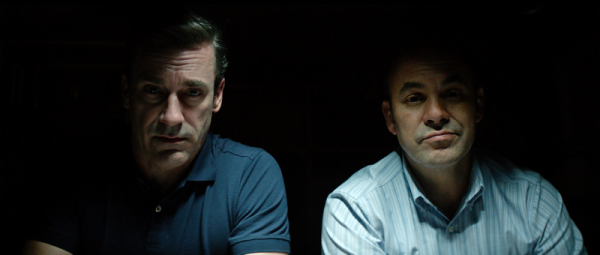
Clint Eastwood’s latest, Richard Jewell, leaves Film Critic Ellie Burridge conflicted over how well it handles the truth of its subject matter
Clint Eastwood’s latest underdog story, Richard Jewell, follows the story of the eponymous security guard (Paul Walter Hauser, I, Tonya) who discovered a bomb in Centennial Park during the 1996 Atlanta Olympics, and who later became the target of both FBI and media scrutiny.
Think of it as the anti-Mindhunter. Jewell fits the ‘profile’ of a hero bomber to a T: he’s a social misfit who lives with his mother and aspires to being a respected member of law enforcement, and (as Eastwood subtly dwells on) he’s a white man. One can imagine Holden from Mindhunter’s delight at finding such a clear suspect, but there’s only one problem – Jewell didn’t do it. He couldn’t have done it, as a series of 911 calls to the authorities from a very specific payphone reveal.
Richard Jewell is at its best when it focuses on how helpless the average citizen is when up against the power of the American government
Richard Jewell is at its best when it focuses on how helpless the average citizen is when up against the power of the American government. Though considerably more indignant outrage comes from Jewell’s mother (Kathy Bates) and lawyer (Sam Rockwell) than Jewell himself (who is represented as respecting authority almost until the end and getting a job as a police officer even after the whole debacle was over), Jewell still unwittingly exposes many of the more sinister aspects of the FBI. There are two separate scenes where the FBI agents (Jon Hamm and Ian Gomez) attempt to trick Jewell into confessing or incriminating himself, both times without his lawyer present. These scenes are not entirely true to the history of the case, but they are evocative.

But then there is the other target of Eastwood’s ire: the media. A few days after the bombing, the Atlanta Journal-Constitution published a story which purported that the FBI was looking into Jewell as a suspect (this was true) and that he fit many of the characteristics of a lone bomber (this was also true). Irresponsibility of the reporting aside, a 2011 lawsuit did find that the article was ‘substantially true at the time [it] was published.’ The story was written by Kathy Scruggs (Olivia Wilde), a character portrayed as so cartoonishly immoral that she seems like she’s from a different movie (a fun one, which Richard Jewell is not). Regardless, the claim is that she irresponsibly incited a ‘trial by media’, something Sam Rockwell gets to yell at her about in a climactic scene. While Scruggs, and the AJC, have been rightfully criticised for their decision to run the story that turned Jewell from a hero to a murderer overnight, the film’s focus on Scruggs’ machinations, as opposed to the power of the media as an institution, seems odd.
[News reporter] Kathy Scruggs [feels] so cartoonishly immoral that she seems like she’s from a different movie
Because the FBI and a local paper make uneasy partners as symbols of a conspiracy to subjugate a good guy, which is presumably why screenwriter Billy Ray chose to make the two organisations bedfellows, literally. There’s the power of the FBI set against the power of a character who simply is not alive to defend herself from the representation that she traded sexual favours for information. In a film so concerned with not smearing someone’s reputation based on false information, Ray and Eastwood delight in making Kathy Scruggs seem as seedy – or as slutty – as possible. The paper she worked for has strenuously objected to her portrayal since the film’s release.

Egregious altering of history aside, Richard Jewell is simply what we’ve come to expect from late Eastwood. It’s rather didactic, with Eastwood’s libertarian politics taking centre-stage, and un-fussily sentimental. There are a lot of scenes of people crying in drab locations against a slightly cloying piano score. There are a lot of big moments for all the actors to show off – and the acting is good across the board.
Richard Jewell left me feeling cold
So why didn’t I like it? Perhaps it was the sheer barrage of scenes telling me to feel sorry for a man I already felt sorry for. Perhaps it was that I had just watched A Beautiful Day in the Neighbourhood, a film that takes formal risks, finds beauty in pain and endeavours to respect every character’s humanity. Maybe I just couldn’t let go of that tagline: ‘The world will know his name and the truth.’ Whatever it was, Richard Jewell left me feeling cold, and wishing I had just read the Vanity Fair article upon which it is based.
Verdict:
Some films are made with a very specific audience in mind, and that’s okay. Clint Eastwood has never angled towards an oeuvre that is beloved by those outside his own demographic; there would be absolutely no reason for him to start now. Therefore, it is with confidence that I recommend Richard Jewell to most any man over the age of sixty.
5/10
Richard Jewell is in cinemas now.
Images courtesy of Warner Bros Pictures. All rights reserved.

Comments